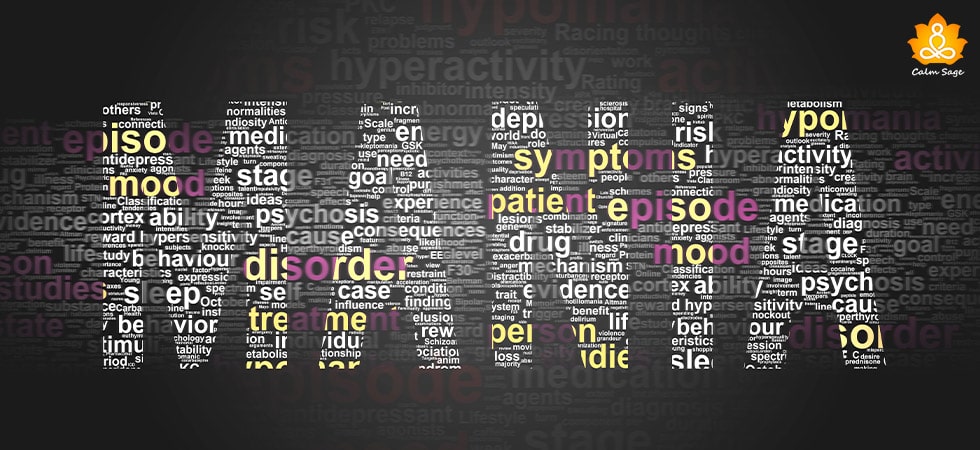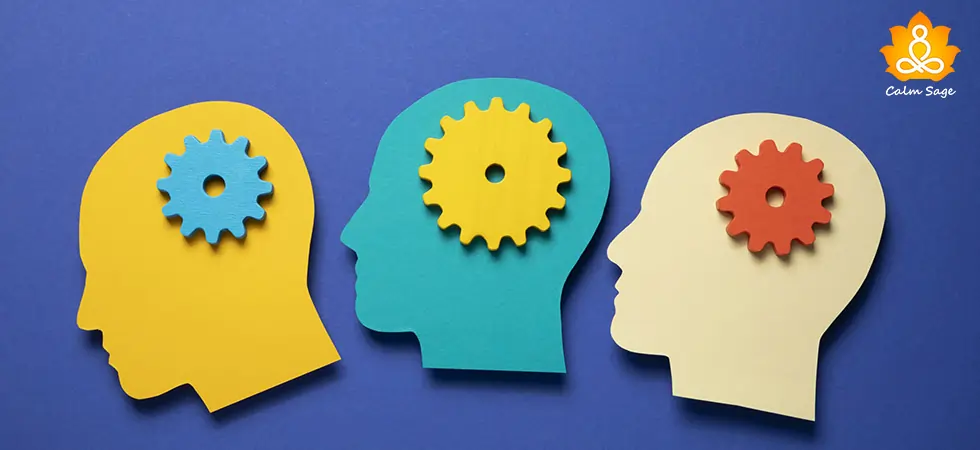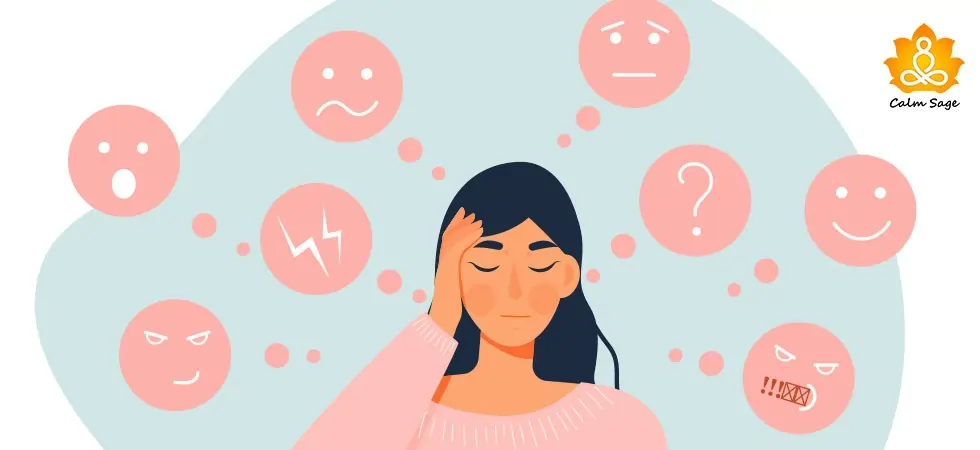Manic Episode: Symptoms, Treatments, and Tips for Managing Mania

The combination or series of abnormal or persistent symptoms like irritable mood, excitement, overactivity, agitation, grandiosity, over-optimism, impaired judgment, or dangerous behaviors comes under mania. Mania is generally related to bipolar disorder, however, people with other issues can also experience mania psychologically.
Whenever maniac episodes are observed in non-bipolar disorder people, there could be various causes or factors related to it such as side effects of medical conditions or any toxic substance. In this blog, we will understand mania, its symptoms, causes, diagnosis, treatment, and more.
List of Contents
So, let’s get started!
What is Mania?
Mania is a mental health condition that can cause unreasonable intense mood, delusions, hyperactivity, or euphoria. While mania is known to be the common symptom of bipolar disorder, it can also be developed in other mental health conditions due to various factors or causes. Mania is one of the most dangerous conditions out of all due to several reasons.
During a manic episode, people are not able to eat or sleep properly and they get indulged in risky behaviors or self-harm. In some situations, this can result in hallucinations or other disturbances.
What Triggers Mania?
Manic episodes are unique for everyone and triggers related to mania totally depend on how someone reacts or behaves to different situations. Understanding your triggers can help you prepare a crisis plan, lessen the effects, and prevent the consequences.
Below listed are some of the common triggers related to mania:
- Highly stimulating environment or situation
- Lack of sleep or changes in sleep pattern
- Major life changes like marriage, job loss, separation, or divorce
- Substance use such as alcohol or recreational drugs
Symptoms of Mania
Below listed are some of the common symptoms of a manic episode:
- Abnormal levels of energy or any activity
- Being obsessed with a specific activity
- Being more talkative than usual
- Changes in sleep pattern
- Distraction
- Extremely happy, excited, or euphoric
- Inflated self-esteem
- Impulsive behavior
- Racing thoughts
- Recklessness
Causes of Mania
The causes of mania are not exactly known but according to research, mania could be developed or caused due to the following reasons:
1. Brain differences
People struggling with bipolar disorder or other mental health conditions experience conspicuous brain changes. Research shows that people struggling with bipolar disorder have different activation and connectivity responses as compared to normal people.
2. Family history
Genetics or family history have a strong connection with the episodes of mania.
3. Stress or others
Stress or other events like a breakup, job loss, conflicted relationships, financial problems, or a chronic illness triggers symptom relapses or manic episodes
Research also shows that some physical conditions can also be related to mania, such as:
- Alcohol abuse
- Brain injury
- Brain tumor
- Drug use
- Dementia
- Encephalitis
- Insomnia or sleep deprivation
- Lupus
- Postpartum psychosis
- Side effects of medications
- Stroke
If you think you or your loved one might be experiencing manic episodes, please know that such symptoms or triggers should never be ignored and need proper diagnosis through a certified and experienced mental health professional. Leaving manic episodes untreated can be really dangerous for the overall well-being.
Talking about complications, suicide or self-harm is one of the most severe complications of mania. Below are some of the complications of mania that call for a mental health professional:
- Visual or auditory hallucinations (hearing or seeing something which is not real)
- Paranoia
- Delusional behaviors
Diagnosis of Mania
In order to be diagnosed with mania or underlying mental health condition, the first step to be taken is to connect with a certified and experienced mental health professional. The professional assigned will discuss the symptoms, their intensity, and other factors which are important for the diagnosis.
According to psychology, a person must have more than three symptoms persisting to a degree, such as:
- Agitation or increased activity
- Behavioral changes such as extreme talking or pressure to keep talking
- Decreased sleep
- Extreme distraction or irrelevant stimuli
- Excessive involvement in painful consequences-related activities
- Grandiosity or overblown self-esteem
- Racing thoughts or flight of ideas
On the basis of the assessment, the mood assessment, occupational functioning, medication-induced, and substance-induced mania will be specified.
Treatment of Mania
According to the diagnosis, your professional is likely to prescribe you some effective symptom management or disorder management treatment options. Generally, medication and psychotherapy, or a combination of both.
1. Medications
Your professional is likely to prescribe some medications based on specific symptoms or underlying causes. Medications are less likely to be prescribed in a mental health setting. However, selective medications are prescribed such as selective serotonin reuptake inhibitors (SSRIs) as antidepressants usually for preventing depressive episodes, reducing mania, or reducing mood cycling. Other medications commonly prescribed are antipsychotics, benzodiazepines, mood stabilizers, or sleep aids.
2. Therapy
Psychotherapy is one of the most effective treatments for mania or manic episodes. Therapy focuses on developing healthy coping skills and supporting clients. Additionally, psychotherapy also helps in navigating through triggers and building healthy mechanisms. Here are some common and effective types of psychotherapy that help in treating mania or bipolar disorder related to mania:
1. Cognitive behavioral therapy (CBT)
Cognitive behavioral therapy (CBT) is useful and effective for changing inaccurate perceptions and replacing them with positive ones. CBT basically helps in identifying challenges and replacing them with more realistic and objective thoughts. Major components of CBT include mental distractions, journaling, role-playing, and relaxation techniques.
2. Dialectical behavioral therapy (DBT)
Dialectical behavioral therapy (DBT) helps in bringing stability, getting control over the problematic area, and most importantly it allows people to accept their emotions and work on them. Additionally, it helps in enhancing the overall quality of life by maintaining an ongoing capacity for happiness and success.
3. Group or family-based therapy
Family or group therapy is useful to control triggers and understand behaviors. To know more about group therapy and family therapy, refer to:
- How to make the most of group therapy?
- Pros and Cons of Group Therapy
- Overview of Family Systems Therapy
Living Life with Mania
Manic episodes cannot always be prevented, in order to manage them, you might need to create a plan for managing your symptoms and preventing them. Here are some ideas that you can use effectively to make a management plan:
- Start avoiding stimulating environments, behaviors, or activities.
- Add relaxing and calming activities to your schedule regularly.
- Stick to strict routines and take medications on time.
- Limit social contacts and keep yourself confined to the people who support you.
- Create a crisis plan and share the plan with your loved one or family member.
I hope this blog helps you understand everything you wanted to know about mania. Comment down and share your views on the same. For more such content, connect with us through all social media platforms.
Thanks for reading!




















